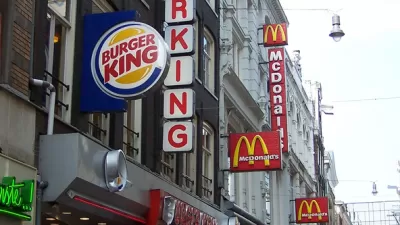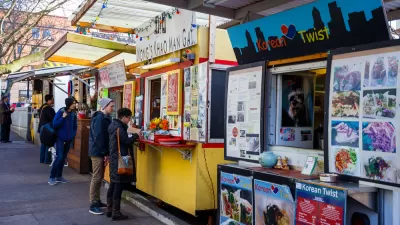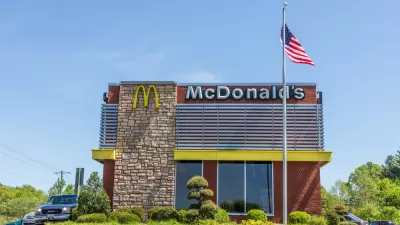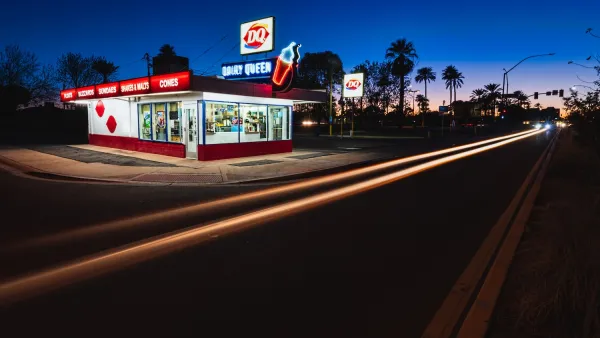Climate controlled public places where the elderly, cost-conscious and indigent are welcome to spend a few hours are hard to find. Tensions have erupted at McDonald’s restaurants in NYC between customers seeking a refuge and business interests.

"Behind the Golden Arches, older people seeking company, schoolchildren putting off homework time and homeless people escaping the cold have transformed the banquettes into headquarters for the kind of laid-back socializing once carried out on a park bench or brownstone stoop," observes Sarah Maslin Nir. But restaurant managers and franchise owners aren't too keen on the adoption of their restaurants as "[coffeehouses] for the people." A recent episode at a McDonald’s in Flushing, Queens, which resulted in management calling the police on a group of older Koreans, illustrates what can happen when these interests collide.
“As long as there have been cities, these are the kind of places people have met in,” said Don Mitchell, a professor of urban geography at Syracuse University and the author of “The Right to the City: Social Justice and the Fight for Public Space.” “Whether they have been private property, public property or something in between,” he said, “taking up space is a way to claim a right to be, a right to be visible, to say, ‘We’re part of the city too.’ ”
Sociologists such as Ray Oldenburg argue that "third places" like cafes and coffeehouses are central to local democracy and community vitality. "But the leisurely cafe culture and the business plan behind fast food are in opposition," notes Maslin Nir.
FULL STORY: The Food May Be Fast, but These Customers Won’t Be Rushed

Planetizen Federal Action Tracker
A weekly monitor of how Trump’s orders and actions are impacting planners and planning in America.

Maui's Vacation Rental Debate Turns Ugly
Verbal attacks, misinformation campaigns and fistfights plague a high-stakes debate to convert thousands of vacation rentals into long-term housing.

San Francisco Suspends Traffic Calming Amidst Record Deaths
Citing “a challenging fiscal landscape,” the city will cease the program on the heels of 42 traffic deaths, including 24 pedestrians.

Amtrak Rolls Out New Orleans to Alabama “Mardi Gras” Train
The new service will operate morning and evening departures between Mobile and New Orleans.

The Subversive Car-Free Guide to Trump's Great American Road Trip
Car-free ways to access Chicagoland’s best tourist attractions.

San Antonio and Austin are Fusing Into one Massive Megaregion
The region spanning the two central Texas cities is growing fast, posing challenges for local infrastructure and water supplies.
Urban Design for Planners 1: Software Tools
This six-course series explores essential urban design concepts using open source software and equips planners with the tools they need to participate fully in the urban design process.
Planning for Universal Design
Learn the tools for implementing Universal Design in planning regulations.
Heyer Gruel & Associates PA
JM Goldson LLC
Custer County Colorado
City of Camden Redevelopment Agency
City of Astoria
Transportation Research & Education Center (TREC) at Portland State University
Jefferson Parish Government
Camden Redevelopment Agency
City of Claremont





























